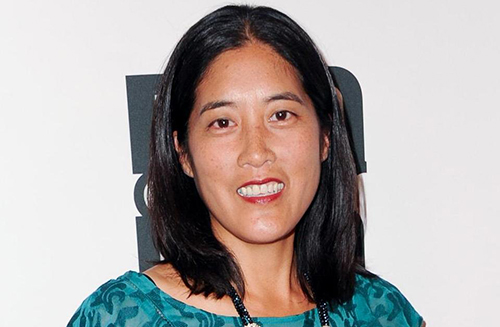'Barbie Chang’s Tears': Expanding the Autobiographical

Each month we feature a guest post from a contributor to Poetry’s current issue. Victoria Chang’s poem “Barbie Chang’s Tears” appears in the October 2016 issue. Previous posts in this series can be found on the Editors’ Blog.
The poem “Barbie Chang’s Tears,” published in Poetry this month, is part of a larger manuscript titled Barbie Chang. I haven’t really had to talk or write about the manuscript or the poems in the manuscript until now, so I thought I would take this opportunity to think through how this manuscript and this poem formed.
Last year, I began writing poems that were first-person, mostly autobiographical poems. The poems stemmed from some of my experiences being a parent in a school community that was very insular, dealing with the long-term illness of my mother, and managing my father’s dementia. I enjoyed using language play to write the poems and wrote a group of poems one after another during a three-month period.
I never felt like these poems were working until one day, the name “Barbie Chang” appeared in my head. The idea of a character who is Chinese American but named Barbie struck me as strangely funny and paradoxical and suddenly, this character began to come alive. Barbie became a Chinese American woman who was born in America but could never fully assimilate with certain types of women because of her appearance and culture, even if she were named Barbie. As an experiment, I replaced all first-person “I”’s with “Barbie Chang” and revised the poems with that character in mind, and the poems seemed to breathe and expand. My imagination could wander and I felt freed of autobiographical constrictions. I edited and expanded the poems and wrote new ones for another three months.
Despite these efforts, the manuscript still felt incomplete and simplistic. My mother passed away during the summer of 2015 and I felt a sense of physical and emotional trauma that I had never expected. That summer, Barbie Chang also lost her mother and I wrote a few additional poems that were based on my experiences. Again, I felt that I could expand even these very personal elegies through this character who had become a sort of shadow, projection, and even a friend.
Still, my manuscript felt unsatisfactory. I decided to try to “complicate” my manuscript, pulling out an old manuscript (Man 4). I started plucking out poems that explored themes of insatiable desire and placing them within the new Barbie Chang manuscript and suddenly, the whole thing felt fuller and more realized. Similarly, I changed the first person to Barbie Chang and re-worked those poems.
I started sending out the Barbie Chang manuscript and Copper Canyon Press was interested. They held onto it for a while and ultimately rejected it, stating they wanted more “interruptions and variations” in pacing, as well as some more “formal surprises.” I read these few sentences over and over until they burned into my computer screen and my brain. One day, I pulled out another old manuscript titled Dear P. I extracted a series of epistolary poems written to my eldest daughter from the manuscript, placed them in the center of Barbie Chang, and then re-worked the whole manuscript religiously for weeks. I resent it to Copper Canyon and they ended up accepting the manuscript for publication. I only tell this publisher story because the conversations (albeit one-way and through email) that I had with editors really helped shape my manuscript and made it better in the end.
The poem “Barbie Chang’s Tears” originally came from one of the older manuscripts. It explores the idea of desire and an obsession with the beginnings of falling in love, versus what comes after. The character Barbie Chang has everything she could possibly want in life, but continues to be insatiable. Men appear in her dreams every night but she can never, and doesn’t want to, fully grasp onto them. This theme of desire and imprisonment spoke to the other poems in Barbie Chang that also grappled with different forms of desire.
In hindsight, I think the third-person character Barbie Chang appeared as a subconscious way to respond to the commonly used phrase, “the personal is universal.” Barbie Chang was based on my own personal experiences but she allowed the poems to become more pliable and more expansive. I didn’t want the autobiographical to be a slave to truth or reality. And in hindsight, I was probably avoiding the autobiographical in the hunt for some kind of “universal” which I understood would risk erasure of the self or my particular kind of self. Perhaps I was also subconsciously thinking that my own “personal” could never be universal (because the universal that I had known all my life wasn’t ever really universal in the first place, but rather was the male, white universal).
Now that the manuscript is mostly finished, I think I reconciled my internal conflicts over the idea that “the personal is universal” by finding a hybrid space between the first and third person that allowed my imagination to grow. I’ve also refined my thinking about autobiography and the phrase “the personal is universal”—it not only feels too binary, but also no longer feels wholly relevant. Maybe the personal is only one kind of fluid and cross-sectional universal. Perhaps universal is the wrong word entirely and commonality or communal are better words. Perhaps for a poet, focusing on reaching the “universal” is a lost cause. Maybe a poem shouldn’t try to speak for everyone, but instead should try to speak for the imagination because, in the end, maybe imagination is what is universal.
Victoria Chang (she/her) is the author of The Trees Witness Everything (Copper Canyon Press, 2022); …
Read Full Biography

